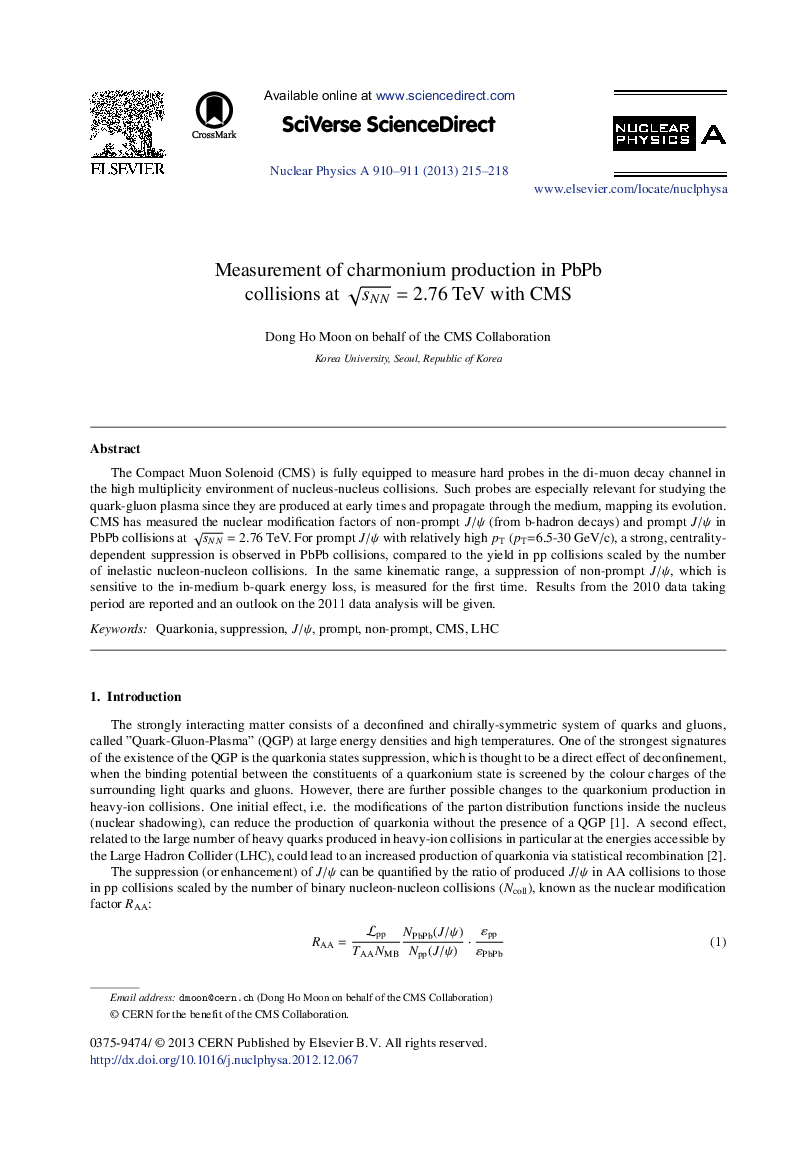| Article ID | Journal | Published Year | Pages | File Type |
|---|---|---|---|---|
| 8183916 | Nuclear Physics A | 2013 | 4 Pages |
Abstract
The Compact Muon Solenoid (CMS) is fully equipped to measure hard probes in the di-muon decay channel in the high multiplicity environment of nucleus-nucleus collisions. Such probes are especially relevant for studying the quark-gluon plasma since they are produced at early times and propagate through the medium, mapping its evolution. CMS has measured the nuclear modification factors of non-prompt J/Ï (from b-hadron decays) and prompt J/Ï in PbPb collisions at sNN=2.76TeV. For prompt J/Ï with relatively high pT (pT=6.5-30GeV/c), a strong, centrality-dependent suppression is observed in PbPb collisions, compared to the yield in pp collisions scaled by the number of inelastic nucleon-nucleon collisions. In the same kinematic range, a suppression of non-prompt J/Ï, which is sensitive to the in-medium b-quark energy loss, is measured for the first time. Results from the 2010 data taking period are reported and an outlook on the 2011 data analysis will be given.
Related Topics
Physical Sciences and Engineering
Physics and Astronomy
Nuclear and High Energy Physics
Authors
Dong Ho Moon, CMS Collaboration CMS Collaboration,
